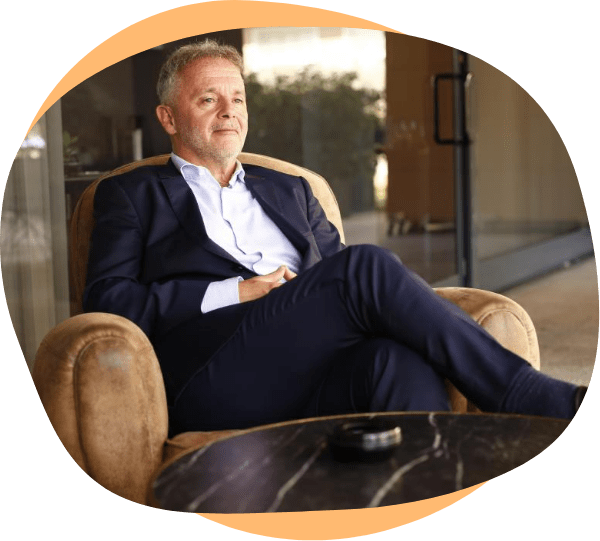History
This translational medical discipline examines interconnected body systems and their relationship with psychological, social and ecological aspects of the patient’s life. The aim of the Pruimboom Institute is to incorporate this approach into healthcare to provide a more integrative overview of patients’ health.
Dr. Leo Pruimboom has over three decades experience developing and directing educational programs in cPNI. His master’s courses have been hosted by four different universities. In addition, he regularly runs external cPNI courses and webinars for medical professionals.
He founded the Pruimboom Institute to bring together all of these academic offerings and facilitate the professional development of healthcare practitioners.

A biochemist by training, he has dedicated his career to developing medical protocols that not only treat the symptoms of diseases, but also address their underlying physiological, social and ecological causes. Recognizing a need to incorporate this integrative approach into medical practice, he founded the Pruimboom Institute in 2023 to provide training to medical and paramedical professionals.
Dr. Pruimboom is the creator of Intermittent Living: a series of practical strategies that rebalance health and promote wellness in the general population. He runs week-long immersive programs in natural surroundings that apply the principles of cPNI.
He also founded the European Academy of Psychoneuroimmunology in 1996, and PNI Europe in 2014. He has combined his scientific research in the field with consultancy on its implementation in medical practice. He has treated thousands of patients from all over the world, integrating psychology, neurology and sociology among other disciplines.
Dr. Pruimboom is the author of three books, and has published several scientific papers in the field of clinical psychoneuroimmunology.
Our manifesto
To the entire medical community and health professionals who strive every day to offer quality, people-centered care based on scientific evidence:
-
The current health system dehumanizes clinical practice by making the optimal doctor-patient relationship impossible.
-
Current medical care focuses on alleviating symptoms, regardless of the disease or the causes of the disease.
-
The health model overly favors drug prescription and surgical intervention, instead of promoting prevention and healthy habits.
-
Diagnostic processes are increasingly based on technological tests. With this, the disease and, in general, the concept of health is dissociated from the person and their history.
-
Society, disappointed and eager to receive a differential service, is losing faith in medicine and many are seeking answers in pseudoscientific practices, thus generating increasingly sick populations.
-
The health community demands rescuing scenarios where they can once again humanize their work, recover their vocation and return excellence to their profession.
Clinical Psychoneuroimmunology (cPNI)
THE NEXT STEP IN MEDICAL PRACTICE
This new model is offered to us by Clinical Psychoneuroimmunology (KPNI), a new field of translational medicine that studies people’s health from the interconnection between the different body systems during their response to past, present and future stimuli and environments. The human body systems that play a key role in KPNI are neurological, endocrine, immune, and metabolic.
-
01.
Focuses on the people and not the symptoms.
-
02.
Recovers the etiological conception of medicine: it looks for the origin of the disease and the pathophysiology of the disease.
-
03.
Examines the patient from a more humanistic perspective. Technological tests for diagnosis are accompanied by the emotional, social and evolutionary analysis of the patient, as well as their ability to adapt to changes.
-
04.
Incorporates into clinical practice the scientific knowledge that describes the close biochemical relationship between the neurological, endocrinological, immune and metabolic systems.
-
05.
Compared to the disease-prescription formula, it promotes changes in habits derived from an exhaustive analysis of the patient and their context.
-
06.
Gives the patient a leading role in the future of their well-being, allowing them to share the knowledge that concerns their state of health and to increase the drucebo effects of most interventions.
-
07.
Conceives health as the correct distribution of resources between cells, tissues, organs, systems and societies.
-
08.
Protects the body from the harmful habits of modern life through innovative mechanisms based on science.
-
09.
Addresses chronic diseases caused by low-grade inflammatory processes that significantly affect our health.
-
10.
Therefore, it provides a comprehensive patient-centered health model and an accurate description of the disease.